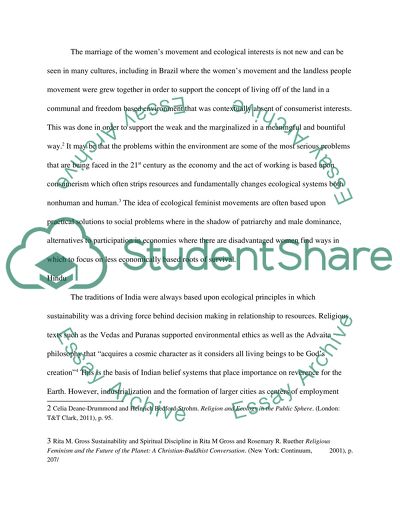Cite this document
(“Religion, Feminism, and Environmentalism Research Paper - 1”, n.d.)
Religion, Feminism, and Environmentalism Research Paper - 1. Retrieved from https://studentshare.org/religion-and-theology/1468155-religion-feminism-and-environmentalism
Religion, Feminism, and Environmentalism Research Paper - 1. Retrieved from https://studentshare.org/religion-and-theology/1468155-religion-feminism-and-environmentalism
(Religion, Feminism, and Environmentalism Research Paper - 1)
Religion, Feminism, and Environmentalism Research Paper - 1. https://studentshare.org/religion-and-theology/1468155-religion-feminism-and-environmentalism.
Religion, Feminism, and Environmentalism Research Paper - 1. https://studentshare.org/religion-and-theology/1468155-religion-feminism-and-environmentalism.
“Religion, Feminism, and Environmentalism Research Paper - 1”, n.d. https://studentshare.org/religion-and-theology/1468155-religion-feminism-and-environmentalism.


